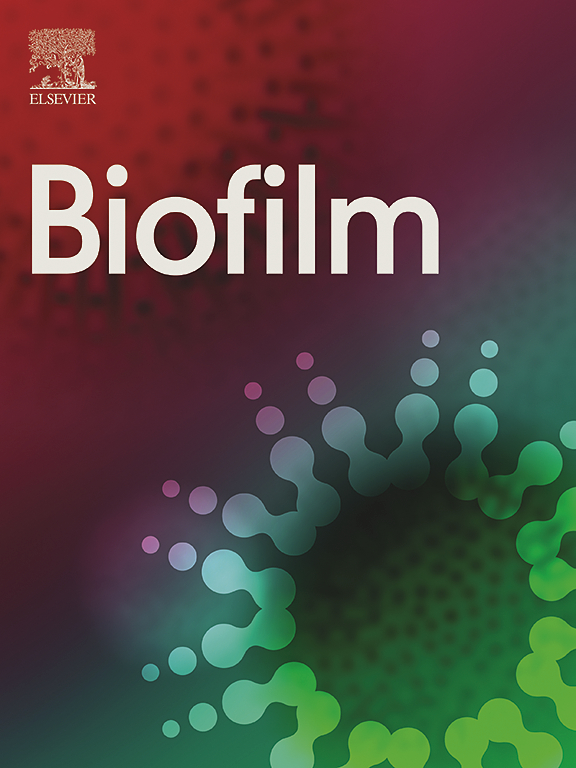Dual roles of the conditional extracellular vesicles derived from Pseudomonas aeruginosa biofilms: Promoting and inhibiting bacterial biofilm growth
Abstract
Antibiotic-resistant biofilm infections have emerged as public health concerns because of their enhanced tolerance to high-dose antibiotic treatments. The biofilm life cycle involves multiple developmental stages, which are tightly regulated by active cell-cell communication via specific extracellular signal messengers such as extracellular vesicles. This study was aimed at exploring the roles of extracellular vesicles secreted by Pseudomonas aeruginosa at different developmental stages in controlling biofilm growth. Our results show that extracellular vesicles secreted by P. aeruginosa biofilms during their exponential growth phase (G-EVs) enhance biofilm growth. In contrast, extracellular vesicles secreted by P. aeruginosa biofilms during their death/survival phase (D-EVs) can effectively inhibit/eliminate P. aeruginosa PAO1 biofilms up to 4.8-log10 CFU/cm2. The inhibition effectiveness of D-EVs against P. aeruginosa biofilms grown for 96 h improved further in the presence of 10–50 μM Fe3+ ions. Proteomic analysis suggests the inhibition involves an iron-dependent ferroptosis mechanism. This study is the first to report the functional role of bacterial extracellular vesicles in bacterial growth, which depends on the developmental stage of the parent bacteria. The finding of D-EV-activated ferroptosis-based bacterial death may have significant implications for preventing antibiotic resistance in biofilms.

 求助内容:
求助内容: 应助结果提醒方式:
应助结果提醒方式:


